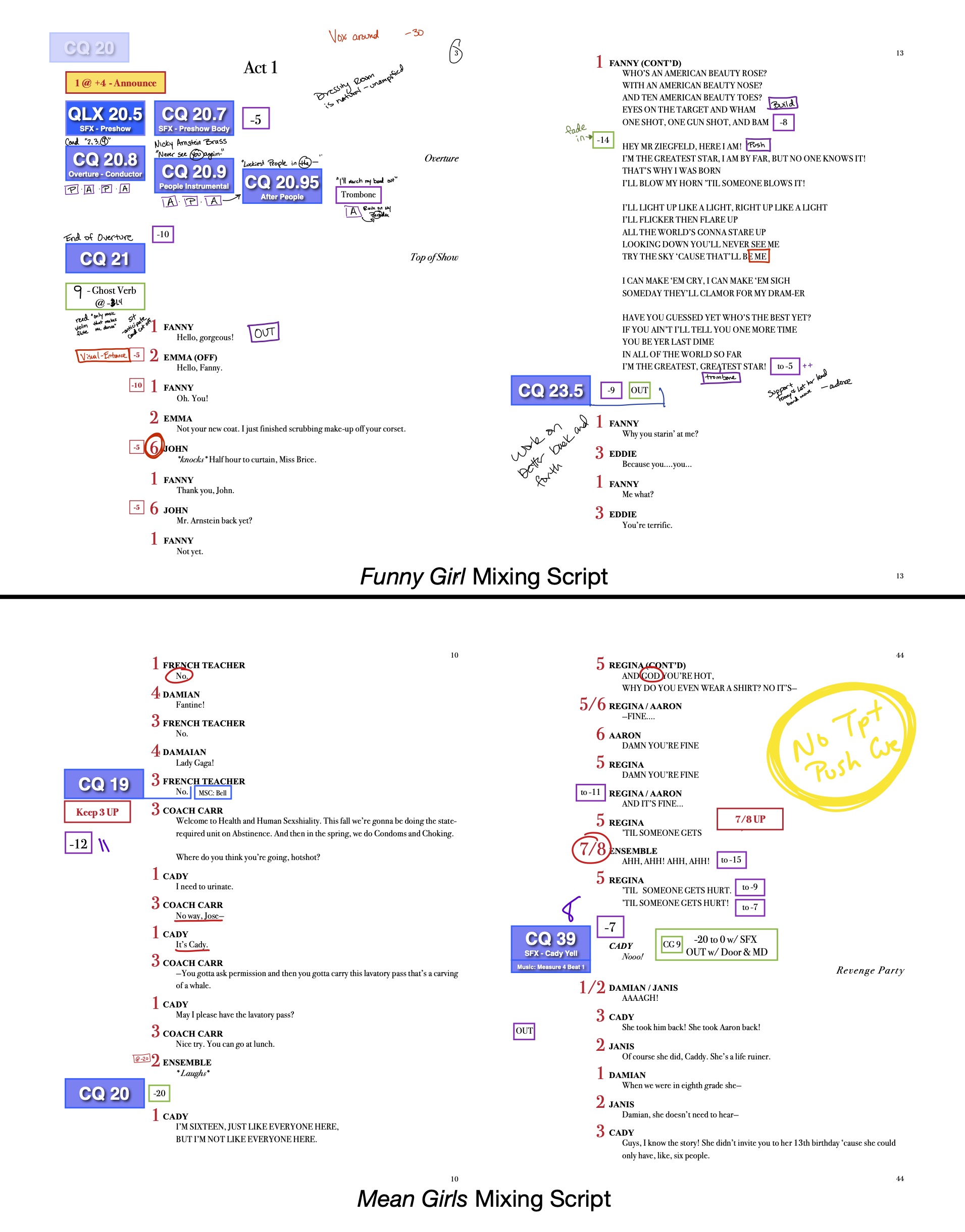Community, Leadership, Experimentation, Diversity, & Education
Pittsburgh Arts, Regional Theatre, New Work, Producing, Copyright, Labor Unions,
New Products, Coping Skills, J-O-Bs...
Theatre industry news, University & School of Drama Announcements, plus occasional course support for
Carnegie Mellon School of Drama Faculty, Staff, Students, and Alumni.
CMU School of Drama
Monday, February 06, 2023
Time to Train
SoundGirls.org: You usually have between two and three weeks (16-24 shows) to get from watching the show to mixing it and your training is live, during performances with a paying audience. I got approved about a week before I actually started (it took time to finalize a schedule), so I was able to get the script and an audio archive recording of the show to start. It’s a much shorter process than I’ve talked about in a previous blog, but I still retyped the script, added in my own annotations (all the while listening to the recording of the show so I could get familiar with it), and practiced mixing it all the way through at least once a day, going through my script, adjusting or adding notes or figuring out how to make page turns easier.
Subscribe to:
Post Comments (Atom)

2 comments:
Having always been interested in the touring industry, it is enlightening to know that when you finally get out of the touring industry it is hard to find a paying job that is as stable as touring allows you to be. I never really thought about this idea, and now it’ll help me create a more cohesive plan for my jobs in the future. Also, I believe that sound technicians, designers and mixers don’t get enough credit for all the work they do. People only hear bad sound, never good sound, so when a sound mixer is really good at their job they aren’t often recognized for their accomplishments. When this article described the process for just being able to sub in for a mixer it is insane to think about how seamless they make this process. I never realized how intense mixer’s jobs were, but it makes sense because of how challenging and demanding of a job it is for every show. Not only that, but being able to sub in and out of different performances on Broadway is a superpower indeed because of how different each show is in all different technical elements.
One of my goals as of now is to tour in the entertainment and mix shows - so this is a very interesting article for me. The scripts at the top of the article were one of the first things that jumped out at me - I find her notes to be really clear, and easy to follow, even from someone who doesn’t know a ton about audio mixing in a venue like a Broadway house. I really appreciated all of the graphics, showing different learning styles for songs in a show (I agree with first to last making sense) and the acknowledgement that everyone learns differently, and in a situation as challenging as mixing a show live that the level of comfort you have with the show and the way you mix it is really important. Subbing is such a challenging job as well - people who sub and swing onstage and offstage are so focused on their track, and this article really highlights the challenges of this, as well as learning the track itself.
Post a Comment